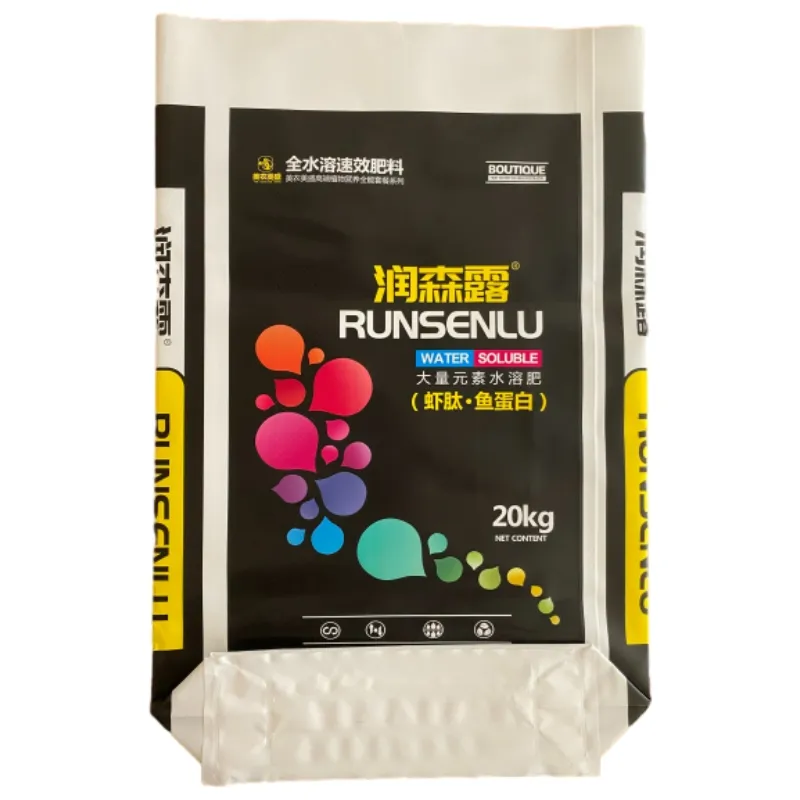Unlocking the Potential An In-depth Guide to Packing Polythene Bags

In the ever-evolving world of packaging solutions, polythene bags have consistently stood out as a versatile, cost-effective, and environmentally mindful choice for businesses and consumers alike. Their lightweight nature and adaptability to various uses make them indispensable in myriad industries, from food packaging to logistics and retail. Harnessing their full potential requires an understanding steeped in both practical usage and the nuances of sustainability and efficiency.
Polythene bags, primarily produced from ethylene, a by-product of natural gas or petroleum, are renowned for their exceptional durability and flexibility. This strength-to-weight ratio is pivotal because it allows these bags to safely store and transport a variety of products without adding significant weight or volume. For businesses, this translates not only into reduced shipping costs but also enhanced operational efficiency.

In the domain of product packaging, the expertise lies in selecting the right gauge and size of the bag, crucial elements that depend on the nature and weight of the contents. For instance, a thicker bag is suitable for transporting heavier items whereas lighter materials may be safely packaged in thinner variants. This selection process underscores the need for professional insight to balance cost considerations with functional requirements.
Polythene bags are not a one-size-fits-all solution. There are variations such as HDPE (High-Density Polyethylene) and LDPE (Low-Density Polyethylene), each with distinct characteristics and best-use scenarios. LDPE bags, due to their flexibility and transparency, are preferred in environments demanding clarity and ease of molding, such as retail and food packaging. Meanwhile, HDPE bags are favored for their superior strength and are often utilized in situations requiring robust resistance against tears and impacts.
packing polythene bags
Innovation in the biodegradable and eco-friendly polythene bag sector is reshaping perceptions and increasing the trustworthiness of these packing solutions. Manufacturers are now producing polythene bags with small amounts of bio-feedstock, reducing the dependency on fossil fuels and catalyzing the breakdown process in natural environments. Such advancements not only meet regulatory requirements but also appeal to environmentally conscious consumers, solidifying a company's position as a leader in sustainable practices.
A critical element of polythene bag usage is ensuring compliance with environmental regulations and waste management protocols. Businesses that align their practices with these standards demonstrate their commitment to sustainability and corporate responsibility. This alignment not only enhances their authority in the market but also builds long-term consumer trust. Training teams in proper recycling and disposal techniques further fortifies a company’s environmental stewardship, ensuring their practices do not contribute to pollution or environmental degradation.
Finally, fostering a culture of transparency and adaptability when communicating with clients about the benefits and limitations of polythene bags enhances credibility. Offering customized solutions and being forthcoming about their comparative sustainability relative to alternative materials ensures clients are making informed decisions. This transparency engenders respect and loyalty, solidifying long-term business relationships.
In conclusion, maximizing the potential of polythene bags in the packaging sector demands a balanced integration of expert knowledge, ongoing innovation, and genuine commitment to sustainable practices. With keen attention to detail and an unwavering dedication to quality, businesses can position themselves as trusted, authoritative leaders in the packaging industry, leveraging the unmatched versatility and efficiency of polythene bags. Whether it's for protection, preservation, or presentation, these bags deliver multidimensional benefits that resonate well beyond their apparent simplicity.